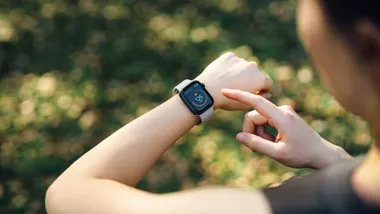While yoyo dieting may not be the ideal way to lose weight, new US research has found that it doesn’t stop you losing the weight for good.
While some researchers had feared that yoyo dieting was detrimental to our health, new research from the Fred Hutchinson Cancer Research Center in Seattle has found that it has no long-term effect on a person’s ability to lose weight at a later stage in their life.
The findings, which were published in the journal Metabolism, have been welcomed by researchers as they may offer encouragement to overweight people who have been unsuccessful in weight loss in the past to persevere.
Despite this, the research also found that women who maintained the same weight for five years or more had a better working immune system with a 40 percent greater “natural killer cell” activity compared to those with unstable weight.
“To our knowledge, no previous studies have examined the effect of prior weight cycling on the body composition, metabolic and hormonal changes induced by a comprehensive lifestyle intervention in free-living women,” lead researcher Dr Anne McTiernan said.
“A history of unsuccessful weight loss should not dissuade an individual from future attempts to shed pounds or diminish the role of a healthy diet and regular physical activity in successful weight management.”
The year-long study looked at 439 overweight to obese women aged 50 to 75 and placed them in one of four groups: reduced-kilojoule diet only; exercise only, which mainly included brisk walking; reduced-kilojoule diet plus exercise; and a control group that received no intervention.
Results showed that the participants on the diet only and diet plus exercise groups reached the program goal and lost 10 percent of their starting weight.
A fifth of the woman included in the research had a history of yoyo dieting, which was defined in the study as someone who had lost and gained more than 9kg three times or more throughout their life.
The study found that there was no difference in the ability of those studied to lose weight or take part in the exercises whether they had a history of yoyo dieting or not.
Other health factors including blood pressure, insulin sensitivity and blood concentration of hormones such as leptin (which makes you feel full) and adiponectin (which regulates glucose levels) did not differ significantly.
“We know there’s an association between obesity, sedentary behaviour and increased risk of certain cancers,” Dr McTiernan said.
“The World Health Organization estimates that a quarter to a third of cancers could be prevented with maintenance of normal weight and keeping a physically active lifestyle.”
Tips on how to lose weight and keep it off:
Nutritionist and author of the Fred Hutchinson Cancer Research Center’s study on yoyo dieting and immune function, Erin Shade, provided the following tips on losing weight and keeping it off.
Eat only when hungry.
Eat as many meals as you can at home. Studies show that meals consumed at home are usually lower in kilojoules than restaurant meals. When you eat at home you also make smaller portions than usual. If you are still hungry after eating you can go back for more.
When you go out to eat, ask for a takeaway box at the beginning of the meal and put half of the food in the box before you start eating.
When snacking, don’t eat from a large container. Instead, remove the amount you will eat and put the container away before you start.
Don’t eat in front of the television. Studies show that people eat larger amounts and less-nutritious foods in front of the tube.
Eat smaller but more-frequent meals to avoid becoming ravenous between meals, which can lead to eating too much too fast.
Include at least one non-starchy fruit or vegetable serving in every meal or snack.
Avoid beverages with empty kilojoules such as soft drinks and “juice drinks”, which are mostly sugar.
Get plenty of sleep. Studies indicate that sleep loss increases the levels hormones such as cortisol, growth hormone and insulin, which can promote fat storage.










